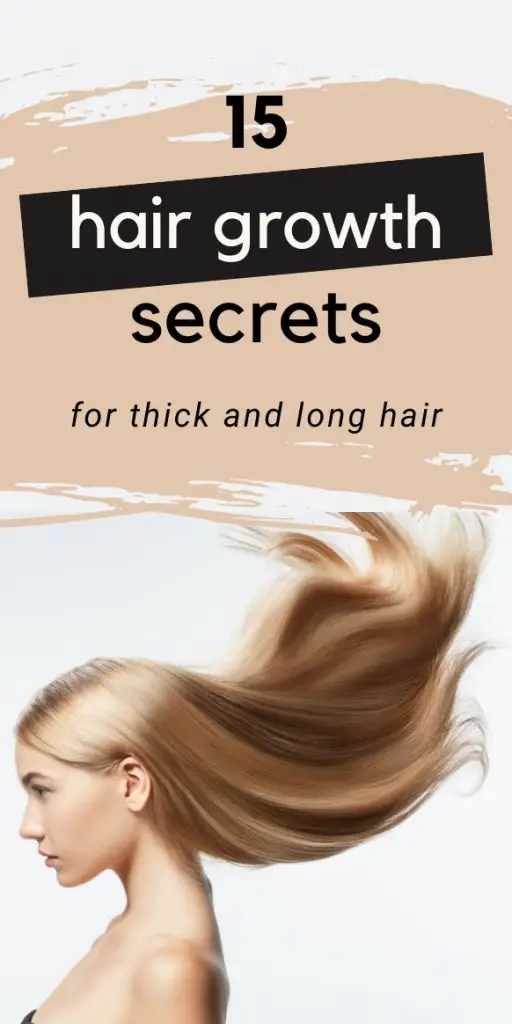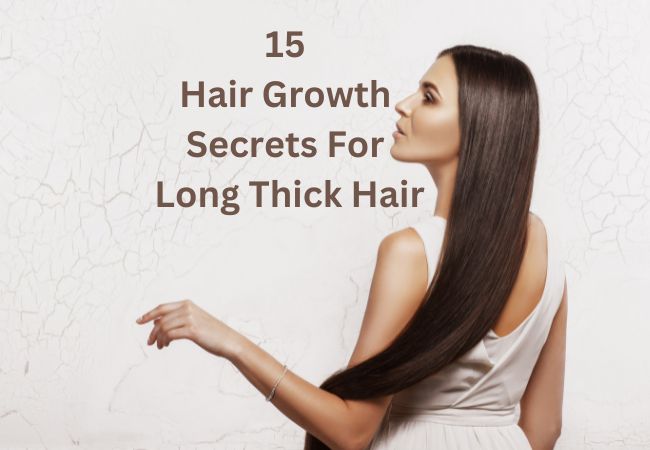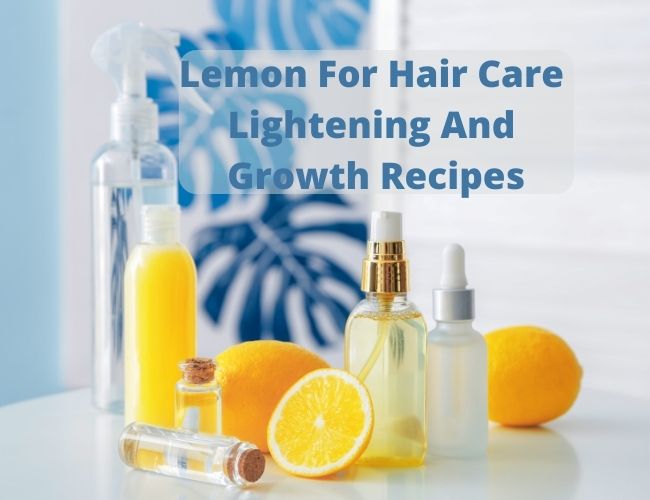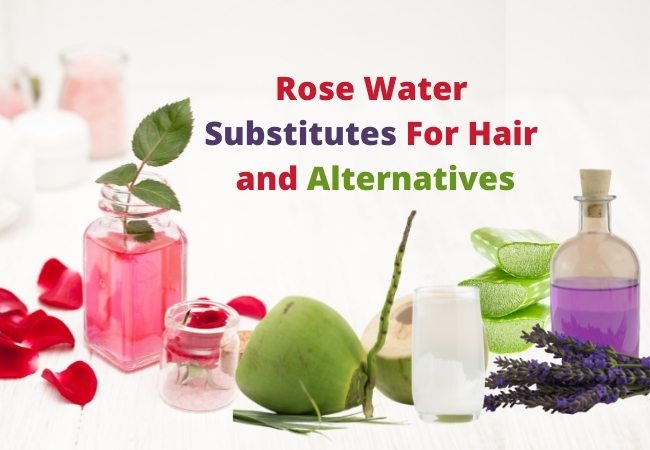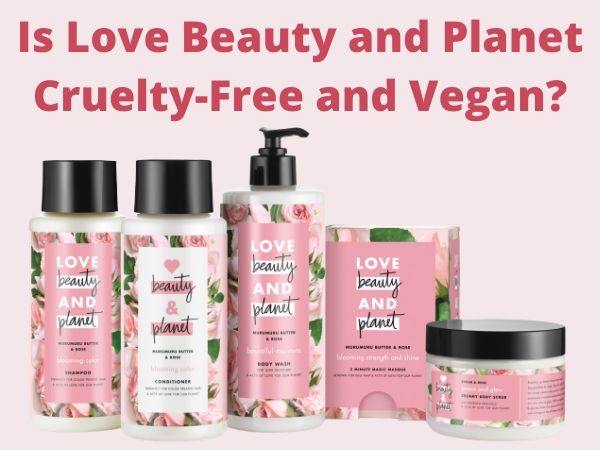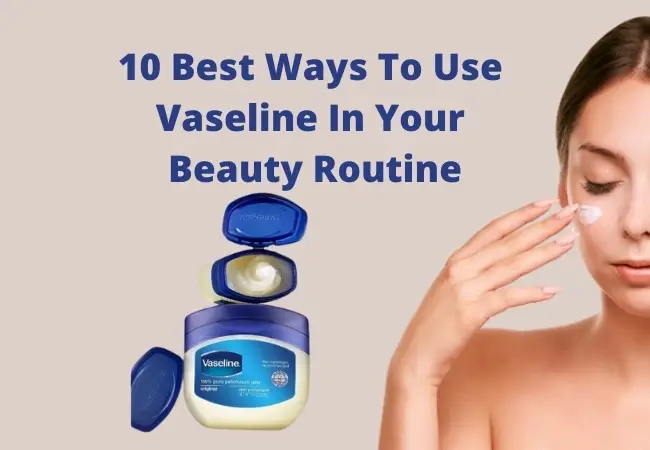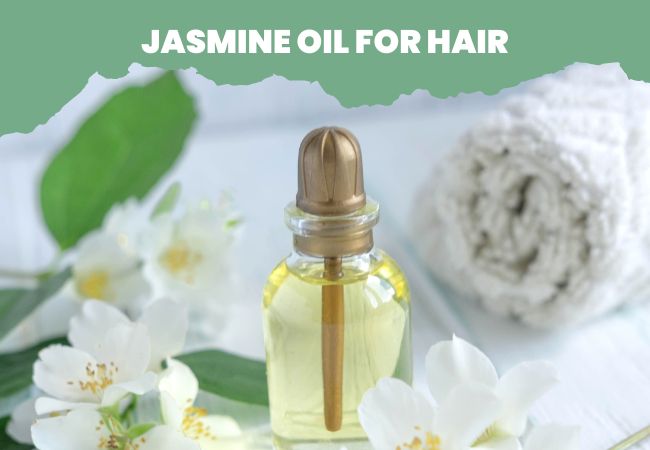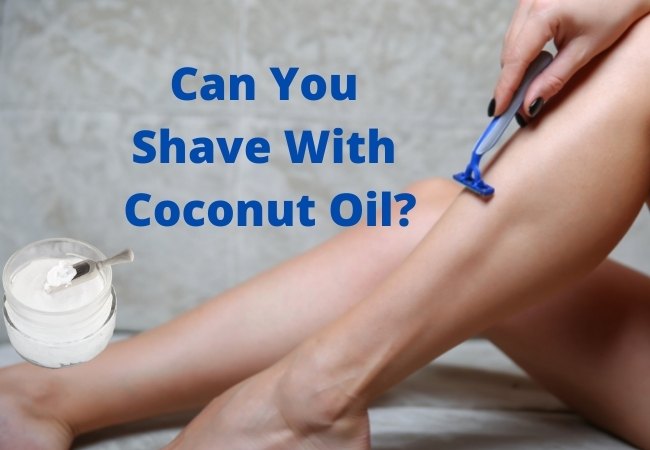Hair growth secrets for long thick hair that have been tested over time. Healthy hair is not just a matter of aesthetics; it’s a reflection of our overall well-being.
Hair Growth Secrets for Long Thick Hair
Shiny, vibrant hair is often associated with good health, and it can boost our confidence and self-esteem.
However, many people struggle with hair-related concerns such as hair loss, thinning, or slow growth.
Fortunately, some various secrets and practices can help address these issues and promote the growth of healthy, beautiful hair.
15 Hair Growth Secrets
In this post, I will explore 15 hair growth secrets that have been proven over time By incorporating these secrets into your daily routine, you can enhance the health and vitality of your hair.
Nutrition and Diet
The role of nutrition in hair health
Nutrition plays a pivotal role in hair growth. Our hair follicles require a variety of vitamins, minerals, and nutrients to function optimally.
Without proper nutrition, hair can become weak, brittle, and prone to breakage.
Foods for promoting hair growth
- Protein-rich foods
Protein is the building block of hair, and a lack of it can lead to hair loss. Incorporate sources of lean protein such as chicken, fish, eggs, and beans into your diet.
- Omega-3 fatty acids
Omega-3 fatty acids help maintain scalp health and promote hair growth. Add flaxseeds, walnuts, and fatty fish like salmon to your meals.
- Biotin-rich foods
Biotin, also known as vitamin H, is essential for hair growth. Include foods like eggs, nuts, and sweet potatoes in your diet to boost biotin intake.
The importance of hydration
Proper hydration is crucial for overall health, including hair health. Drinking enough water keeps your hair moisturized and prevents it from becoming dry and brittle.
Scalp Care
Keeping your scalp clean
A clean scalp provides a healthy environment for hair growth. Use a mild, sulfate-free shampoo and conditioner to prevent scalp irritation and dryness.
Massage techniques for stimulating hair follicles
Regular scalp massages improve blood circulation to the hair follicles, promoting hair growth. Use gentle circular motions to massage your scalp for a few minutes daily.
Avoiding excessive heat styling
Excessive use of heat-styling tools like flat irons and curling irons can damage hair and inhibit growth. Opt for heat-free styling methods when possible to minimize damage.
Hair Care Practices
Using the right shampoo and conditioner
Choose hair products that match your hair type and concerns. If you have oily hair, use a clarifying shampoo, while those with dry hair should opt for hydrating products.
Proper hair-washing techniques
Avoid hot water, which can strip hair of its natural oils. Use lukewarm water and gently massage your scalp while washing. Don’t forget to condition your hair to maintain moisture.
Limiting the use of hair products
Excessive use of styling products like gels and sprays can weigh down hair and make it appear thinner. Use these products sparingly.
Avoiding tight hairstyles
Tight hairstyles such as braids, ponytails, or buns can pull on the hair follicles, leading to breakage and hair loss. Opt for looser styles whenever possible.
Lifestyle Habits
Managing stress
Chronic stress can lead to hair loss. Practice stress-reduction techniques such as meditation, yoga, or deep breathing exercises to promote hair growth.
Getting enough sleep
Quality sleep is essential for cell regeneration, including hair follicle cells. Aim for 7-9 hours of sleep per night to support healthy hair growth.
Regular exercise for improved circulation
Exercise increases blood flow throughout the body, including the scalp, which can nourish hair follicles and stimulate growth.
Quitting smoking and reducing alcohol consumption
Smoking and excessive alcohol consumption can negatively impact hair health. Quitting smoking and moderating alcohol intake can help improve the condition of your hair.
Supplements and Vitamins
The role of supplements in promoting hair growth
Supplements can provide an extra boost of essential nutrients for hair growth, but they should complement a balanced diet, not replace it.
Key vitamins and minerals for healthy hair
- Vitamin A
Vitamin A helps produce sebum, which keeps the scalp moisturized. However, excessive vitamin A intake can have adverse effects, so consult a healthcare professional for guidance.
- Vitamin E
Vitamin E is an antioxidant that can help improve hair health. It promotes blood circulation to the scalp, enhancing hair growth.
- Iron
Iron deficiency is a common cause of hair loss. Ensure you get enough iron through your diet or supplements if necessary.
- Consultation with a healthcare professional
Before starting any new supplements, consult with a healthcare provider to determine your specific nutritional needs and rule out any underlying health issues.
Natural Remedies
Aloe vera for hair growth
Aloe vera has soothing and moisturizing properties that can promote hair growth and reduce scalp irritation. Apply aloe vera gel to your scalp and hair regularly.
Onion juice as a natural remedy
Onion juice is rich in sulfur, which can boost collagen production and improve hair growth. Apply onion juice to your scalp, leave it on for 30 minutes, and then wash it off.
Essential oils for hair health
Certain essential oils, such as lavender, rosemary, and peppermint, have been shown to promote hair growth. Dilute these oils with a carrier oil and massage them into your scalp. Check this post on how to use rosemary essential oil for hair growth.
Avoiding Hair Damage
Protecting hair from UV damage
Exposure to the sun’s UV rays can damage hair and lead to color fading. Use UV-protective hair products or wear a hat when spending extended periods outdoors.
Minimizing heat damage from styling tools
If you must use heat styling tools, apply a heat protectant spray to minimize damage. Use the lowest heat setting necessary to achieve your desired style.
Reducing chemical exposure
Limit the use of chemical treatments such as hair dyes and perms, as they can weaken hair and make it prone to breakage.
Trimming split ends regularly
Regular trims every 6-8 weeks can prevent split ends from traveling up the hair shaft, making your hair appear healthier and more vibrant.
Hormonal Balance
The impact of hormones on hair growth
Hormonal imbalances, such as those caused by thyroid issues or polycystic ovary syndrome (PCOS), can lead to hair problems. Consult a healthcare provider if you suspect a hormonal issue.
Consulting a healthcare provider for hormonal issues
If you suspect hormonal imbalances are affecting your hair, consult with an endocrinologist or healthcare provider who specializes in hormonal health to address the underlying issues and develop a treatment plan tailored to your needs.
Medical Treatments
Hair transplant surgery
Hair transplant surgery may be an option for individuals with advanced hair loss. This procedure involves transplanting hair follicles from one part of the body to the areas with thinning or no hair.
Prescription medications for hair growth
Certain medications, such as minoxidil and finasteride, are FDA-approved to promote hair growth. These medications can be effective, but they require consistent use and a prescription from a healthcare provider.
If you’ve tried various hair growth strategies without success, it may be time to consult a dermatologist or trichologist who specializes in hair and scalp health.
Final Thoughts
Based on your progress, be prepared to adjust your hair care routine and habits. Not all strategies work equally well for everyone, so flexibility is key.
Achieving healthy hair growth is a journey that requires commitment, patience, and a holistic approach to wellness. By implementing these secrets into your daily life, you can enjoy the benefits of beautiful, resilient hair.
Even after you’ve achieved your desired results, don’t neglect your hair. I hope this post on hair growth secrets was helpful. Follow me on Beautythings Pinterest for more awesome natural remedies.
